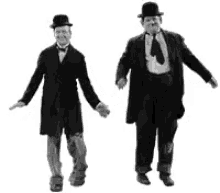Thailand is a Noisy Place
-
Recently Browsing 0 members
- No registered users viewing this page.
-
Topics
-
-
Popular Contributors
-
-
Latest posts...
-
12
Video Bangkok Assault: Woman Challenges Police Inaction After 7-Eleven Attack
Some of the women that I know love it backwards. -
30
Crime Chinese Tourist Robbed of 20,000 Baht by Transgender in Pattaya Hotel
Normal work seems to be off the cards and polishing a horn once or twice is also not the favourite job assignment by the third gender ....... Well, the Chinaman certainly has some stories to share once he hit the land of rice and red flags again 😉 -
13
-
64
KPlus is now almost useless to me after 4 years without issues they impose this on me
OK, just checked, the message has indeed disappeared, making him hopefull. Tried to change the daily limit, but nada, maximum 50000 Baht, as mentioned below where you enter the new amount. When you put in 100000 and hit "done" like we tried, the 50000 limited simply gets highlighted in red... Can increase the limit up to 50000 Baht/day... -
1
Middle East 67 Killed Near UN Aid Convoy in Gaza; Israel Denies Full Toll
This happened daily for weeks. Thanks for starting to report it. 85 according to others. One wonders why his news has been suppressed. https://apnews.com/article/israel-palestinians-hamas-war-07-20-2025-2b494af89d710793bc6933f5ae437566 -
73
UK Chaos at Bell Hotel: Migrant Crisis Sparks Violent Protests in Epping
I did read, and noticed it was second hand information presented by a TV channel with a history far from reliable reputation. Not everyone comprehends the distinction between reliable and unreliable sources. So I then asked for you provide a link to the source report. It’s not much to ask.
-
-
Popular in The Pub





.thumb.jpeg.d2d19a66404642fd9ff62d6262fd153e.jpeg)







Recommended Posts
Create an account or sign in to comment
You need to be a member in order to leave a comment
Create an account
Sign up for a new account in our community. It's easy!
Register a new accountSign in
Already have an account? Sign in here.
Sign In Now